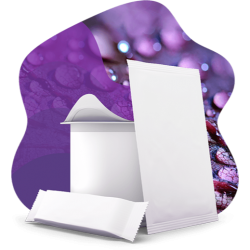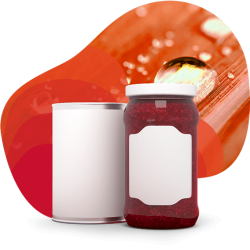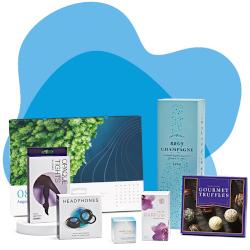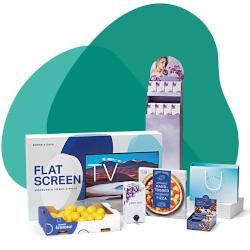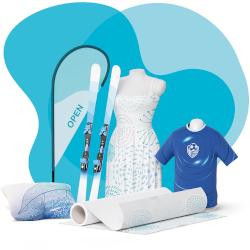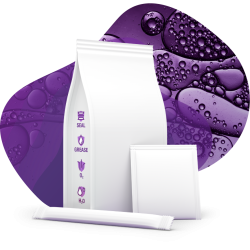
Promoting sales through embossing
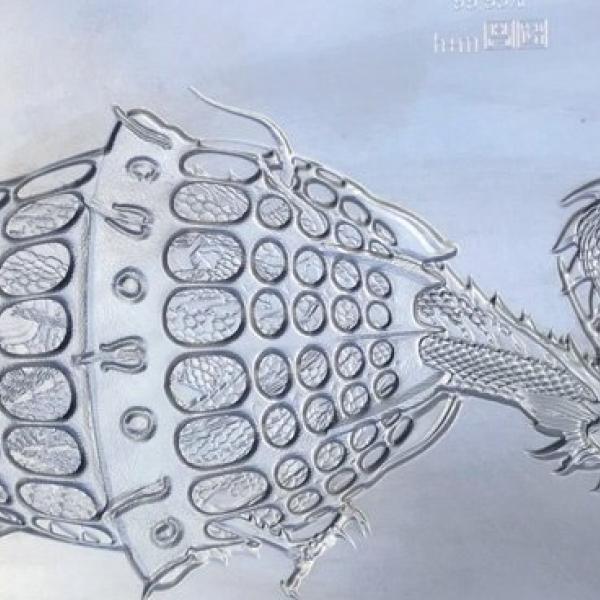
When something glitters, reflects and shines, we want to touch it. We take this urge into account in developing our packaging designs. Breathtaking effects can be attained with embossing: metallic 3D effects, holographic details, and very fine reliefs and textures that we can see AND feel. Heike Martetschläger (Marketing & Design Manager) and Thomas Löchner (Hot Stamping Consultant) of hinderer + mühlich explain the special qualities achieved in finishes using embossing dies and why they use the premium paperboard Algro Design from Sappi.
Packaging has to attract attention, appeal to the senses and excite the consumer. It has to convince them at first glance and ideally, persuade them to make the purchase. The diverse possibilities offered by embossing guarantee maximum customer attention. What sets embossed finishes apart is that they can literally be felt.
Visual and haptic effects boost sales
Embossing dies and a hot stamping machine can work truly eye-catching designs into the base material with a seemingly magical effect. Using heat and high pressure, the impact of foils (such as metallic luster) can be heightened and where the focus is to be placed on the "second glance", haptic stimuli can be created. "What makes embossing so special is that it appeals to both the buyer's haptic and visual senses", Thomas Löchner explains. "Unique visual effects arise due to the refraction of light at the embossment's edges, which we can also feel". The haptic qualities of embossing, especially, promote the consumer's readiness to buy. Products that aren't just attractive to the eye but also have a pleasant feel are more successful than the competition when it comes to consumers' decisions at the point of sale, or in front of the store shelves. "On average, products that use packaging materials with haptic effects achieve up to 30% higher sales", Löchner says. "Embossing has an especially strong impact when it incorporates reliefs and textures", adds Heike Martetschläger.
It doesn't pay to cut corners on the quality of embossing dies
High-quality embossing dies are a prerequisite for refined, razor-sharp embossments. "We manufacture our dies exclusively out of brass", says Löchner. "This allows very fine engravings, which in turn create unique embossing effects. The result of the embossing is also influenced considerably by the base material".
"As a general rule", according to Martetschläger, "for structure embossing or micro- and nano-embossing, the smoother the surface of the material, the better the results". However, most uncoated papers with a less homogeneous surface can also be embossed – "because sometimes the natural texture of uncoated paper is intended as a stylistic device". Where extremely fine structures are to be worked out in the sharpest detail however, a very smooth and homogeneous base material is needed. Such cases call for coated paper or paperboard – as in the production of the new Algro Design Swatch Book. The delicate embossments were used only on the single-coated back side of the Algro Design Card and on the double-coated back side of the Algro Design Duo. For blind embossing, it is also very important that the paperboard is malleable, to prevent tearing at the edges of the embossment. "The premium Algro Design paperboard series from Sappi possesses outstanding characteristics for embossing effects", says Löchner. "It's given us very good results ever since we began using it".
Unique embossment motifs in the Algro Design Swatch Book
The Algro Design Swatch Book, also, uses embossing dies from hinderer + mühlich. Elaborate individual dies were manufactured for each of the six motifs. Martetschläger is convinced: "Sappi and hinderer + mühlich are a great team. We've already successfully realized a large number of projects together. And our collaboration is always based on mutual appreciation".
Curious about the embossments in the Algro Design Swatch Book? Reserve your copy right away.
